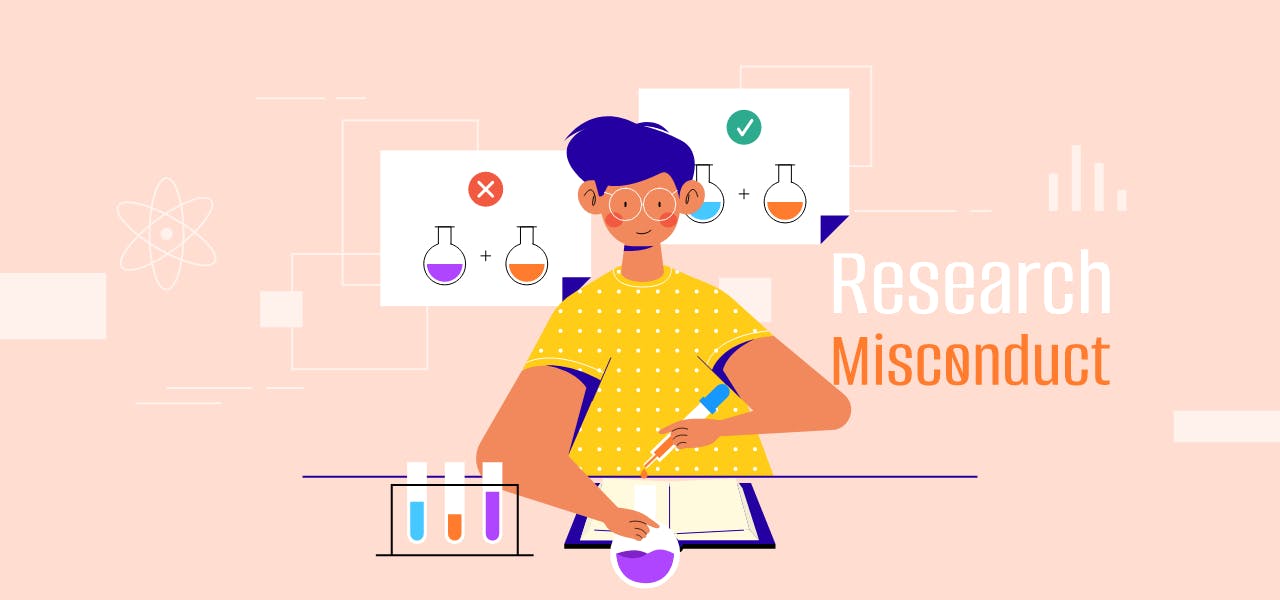Research misconduct is a serious allegation that could ruin a scholar’s promising career. Almost every researcher wants to see their names in the history books, but not with a negative connotation regarding the validity of their research and integrity.
When we think of misconduct, we visualize a villain-esque mad scientist experimenting on unwilling subjects. In reality, research misconduct is much banaler and often unintentional.
How can academic researchers avoid having their reputations and research findings sullied by misconduct?
Why Researchers Are Held to Higher Standards
Professional misconduct is an epidemic in many industries across the country. However, those accused often bounce back from the allegations with a cushy new job as if nothing ever happened. But not everyone is so lucky. Those in academic research rarely see their reputation recover after a scandal involving research misconduct.
Why are those in academia held to a higher standard than other professionals? For one thing, their research is widely cited and relied upon as valid by their peers. These peers put their trust in the honor and integrity of published journal articles.
Researchers are inherently held to a higher standard partly because of the professional code of conduct expected from them. Without ethics and transparency, research findings become unreliable and invalid.
What Defines Research Misconduct and What the Consequences Can Be
Research misconduct is defined as the fabrication of some aspect of the research process, be it the collection of data or the end result findings. Fabrication can mean anything from falsifying results to plagiarism. Many researchers may not realize that they can plagiarize their own work by not citing their previously published work or using old statistics in a new project.
Accidental misconduct is still misconduct. What happens after allegations are made?
The consequences of research misconduct can include several types of disciplines up to and including termination. Furthermore, if the allegations are proven true, the researcher can lose access to funding and be put under a supervised research stipulation.
An allegation of research misconduct will follow the accused through their career. The academic community is vast but surprisingly small. Word will travel throughout different departments.
Even whistleblowers who witness and report the misconduct are often ostracized by their peers, face lawsuits, and are potentially fired from their position.
How to Avoid Misconduct
If most misconduct happens by accident, how does one in the academic field prevent it from happening? The most obvious prevention is: don’t do it. Don’t purposely falsify your research to get ahead or steal someone else’s ideas. It’s not worth the risk.
Accidental research misconduct can happen when frustration and impatience set in. It can be tempting to reuse old data from prior research. However, many journals and institutions have strict policies against plagiarism, even if you’re using your own work product.
One of the most common examples of self-plagiarism involves submitting a paper that was already published to a new journal. Journals expect unique, relevant research papers, not a rehash of a prior idea.
In the case of frustration that a research project is taking too long, take a break! Step away from the research for a day or a week to clear your mind. When you return to it, you will be looking at it with fresh eyes.
If you use your previous data in the new research, add a citation to eliminate the risk of an accusation of self-plagiarism.
Another way to avoid research misconduct is to double-check your sources. Do you know where the information is coming from and is it a valid source?
An allegation of research misconduct isn’t worth risking a meaningful career in academics.
Improve Your Scholarly Reputation With Impactio
For academic scholars and researchers, reputation is everything. A good reputation can help get your work published in journals. Even an accusation of misconduct can haunt an academic throughout their career.
Impactio is the nation’s premier platform for scholars and researchers. The platform offers networking opportunities, as well as data analytics. Create your account today to stay up-to-date on the status of your scholarly reputation and to expand your network.
